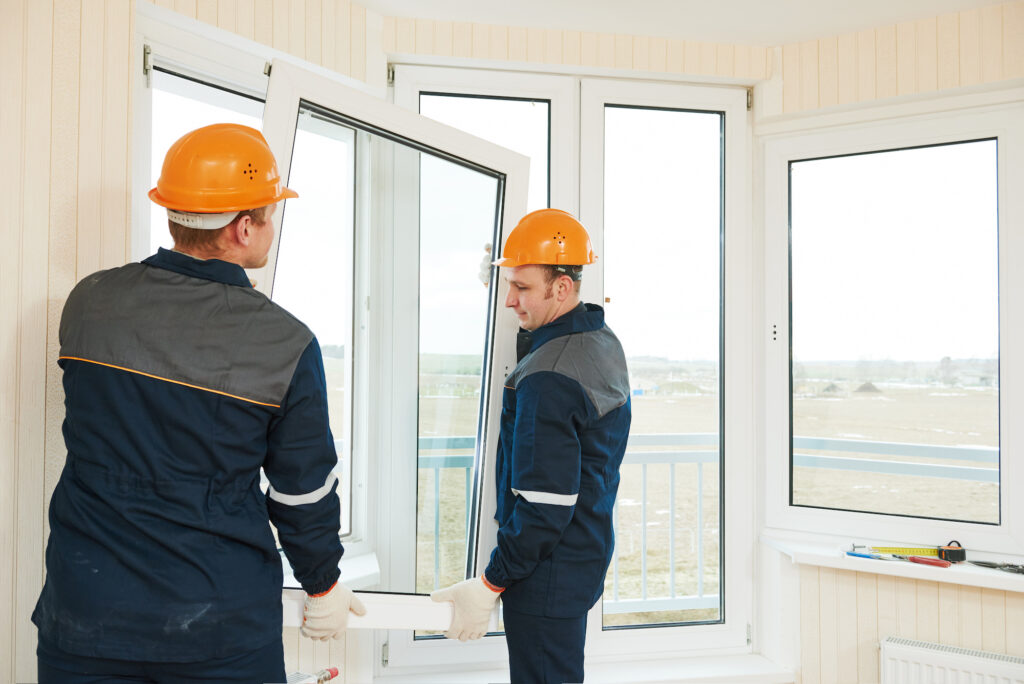In today’s world, where energy efficiency and comfort are paramount, homeowners are increasingly turning to energy-efficient windows. But what makes these windows stand out, and how can they benefit your home?
This comprehensive guide will walk you through everything you need to know about energy-efficient windows, from Low-E glass to argon gas, and help you understand why they are an essential investment for any modern home.
What Makes a Window Energy Efficient? How Does It Work?
Energy-efficient windows are designed to prevent your heated or cooled air from escaping your home. Their primary goal is to reduce your energy bills while increasing your property’s comfort and value. These windows are equipped with special coatings, improved frame materials, and better sealing technology to minimize heat transfer.
By understanding how these components work together, you can make an informed decision about which windows are right for your home.
What is Low-E Glass?
Low-E, or low-emissivity, glass is one of the key features of energy-efficient windows. This type of glass has a microscopically thin coating that reflects heat back to its source, whether it’s the sun’s rays during the summer or your heating system in the winter.
This reflective capability helps maintain a consistent temperature in your home, leading to lower energy costs and increased comfort.
What is Argon Gas? Why is It Used in Windows? Is It Safe?
Argon gas is another component that boosts the energy efficiency of windows. Filling the space between the double or triple glass panes with argon gas reduces heat transfer through the window because argon is denser than air.
This inert, odorless, and non-toxic gas enhances the thermal insulation properties of your windows, contributing to a warmer, quieter, and more comfortable home environment.
Do Energy-Efficient Windows Stay Efficient Forever?
While energy-efficient windows have a longer lifespan compared to their traditional counterparts, they don’t stay efficient forever. Their performance can decline over time due to normal wear and tear, seal deterioration, and other factors. However, with proper installation and maintenance, these windows can serve you efficiently for decades.
What Causes a Window to Become Less Efficient?
Several factors can contribute to the reduced efficiency of a window. These include improper installation, seal failure, and physical damage to the frame or glass.
Environmental factors such as extreme temperature fluctuations and humidity can also affect a window’s performance over time.
How Often Should I Replace Energy-Efficient Windows?
The lifespan of energy-efficient windows can vary based on materials, quality of installation, climate, and maintenance practices.
On average, these windows can last between 20 to 30 years. Regular inspections can help identify any issues early on, extending your windows’ efficiency and lifespan.
Are Energy-Efficient Windows Expensive?
Initially, energy-efficient windows may cost more than standard windows. However, they are an investment that pays off in the long run through lower energy bills, improved home comfort, and increased property value.
At Window Zone, we offer competitive pricing and financing options to make energy-efficient windows accessible to more homeowners.
Expanding Your Knowledge
Beyond these fundamental aspects, it’s essential to debunk common myths surrounding energy-efficient windows. For instance, many believe that these windows can completely eliminate the need for heating or cooling systems.
While they significantly reduce the load on these systems, they don’t replace them entirely. Understanding the realistic benefits and limitations will help set your expectations and ensure satisfaction with your investment.
Maintaining Your Windows
Maintaining energy-efficient windows is key to their longevity. Simple actions like regular cleaning, checking for drafts, and ensuring the seals remain intact can go a long way. Additionally, be vigilant for signs of wear and tear, and address any issues promptly to maintain their efficiency.
Conclusion:
Energy-efficient windows are a smart choice for any homeowner looking to improve their home’s comfort, reduce energy consumption, and save money. By choosing the right windows for your home and maintaining them properly, you can enjoy the benefits of energy efficiency for years to come. Remember, the best time to invest in energy-efficient windows is now – not only for your comfort and savings but also for the well-being of our planet.



